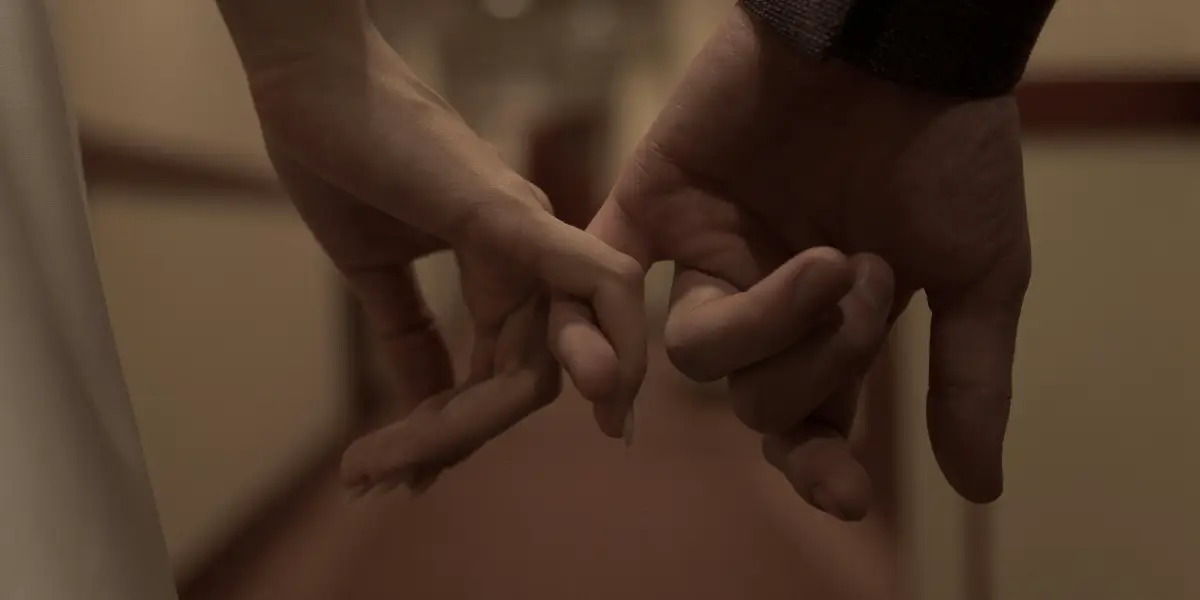Are you one of the estimated 21 million American families with a family member suffering from Substance Use Disorder, or AUD? Maybe your teen daughter is hanging out with new people, and you think that she might be using drugs. Or maybe you caught your partner dipping into your savings account to fund his addiction, and you just can’t come to grips with how that’s affected your retirement.
The scenarios are all too common, and addicts run the risk of permanently damaging their relationships if they don’t get help. Carrara family counseling services give you a way back to living as a cohesive family unit who trust and love each other.
Family therapy for addiction involves meeting with a licensed, certified therapist. Sometimes, you’ll meet together, and sometimes, you’ll receive individual counseling. During the hour you spend with the therapist the family gets a chance to come to terms with the situation and map a plan to move forward together.
You can all openly discuss your feelings and concerns with the therapist in a controlled environment where everyone gets to say their piece. The evidence shows addicts who have the support of their families in getting clean are more likely to successfully complete a rehab program.
Sometimes, it’s hard to convince the family to commit to therapy sessions. Some family members may just give up on the addict.
The psychological drain on their energy and emotions makes them numb to the problem, and they might not respond well to sitting down with the addict to discuss the impact their behavior has on the family dynamic.
That’s okay. Therapists can meet individually with each family member, or the person can choose to join the counseling sessions when they feel up to it. Family therapy isn’t about forcing people to do something about the situation. It’s a bridge of communication to start the healing process and restore some semblance to the relationships between family members.
What are the Signs of Drug or Alcohol Abuse in the Family?
Unfortunately, many families only realize that a parent, sibling or partner has an addiction problem when it’s reached uncontrollable levels. If substance abuse is suspected in your family, closely watch the person’s behavior and physiology. They’ll give you subtle signs that may indicate a problem with alcohol or substance abuse.
Drugs change our physiology and our behavior to a large degree. The longer the addict stays on drugs, the more apparent the changes in their physical appearance become. They could be losing weight at an alarming rate or are paranoid or overly anxious without reason. Changes in behavior and mood come along, and they may start hanging out with new people, discarding old friendships and staying out all night with the new crew.
Their sleep deteriorates or increases outside their usual sleeping hours and affects their school work or performance at their job. You might notice they start lying to you about where they’re going or where they’ve been and they might start stealing from the family members to support their habit.
Understanding the Role of Family Systems Theory in Addiction Recovery
Carrara family addiction counseling involves treatment based on “Family Systems Theory” (FST) and how the family functions and interacts with each other. FST originated in the 1940s with a basis in biology and cybernetics.
FST plays a huge role in family counseling for addiction. Here are some key concepts to understand and how they play out in addiction treatment and family counseling scenarios.
Family Interdependence
Family counseling for addiction realizes that the family members are part of a larger cohesive whole and constantly reacting to each other’s emotions. It’s a symbiotic ecosystem that completely unique in each family.
Family Roles
Each family member plays a role in the dynamic, and those roles can change as time passes. For instance, a father who plays the leadership role in the family may experience a loss of respect from the rest of the family when their addiction finally comes to light, and the family understands the nature of the problem.
Transactional Effects
Parents and children influence each other’s behavior and actions. When there’s dysfunction in this family dynamic due to addiction, it creates stress and unrest.
Personal Boundaries
The boundaries set by the family determine who is a part of the family system. They have unspoken rules about what it takes to be a part of the family, and straying from those boundaries may force the offending member, in this case the addict, out of the family unit.
Systems Equilibrium
The family will always try to return to its original dynamic when faced with a stressor like addiction. That means there’s hope for the addict to reintegrate back into the family after rehabilitating themselves.
Bidirectional
Changes with one family member may affect one family member or the whole group, as is the case with addiction.
Benefits of Family Therapy in Addiction Recovery
Attending family support groups for addiction offers many benefits, not just for the addict but for the family as a whole. It improves the addict’s motivation to keep on track with their treatment and shows them the impact their behavior has on the family unit.
Family therapy increases the support the addict has to fall back on when they’re in danger of relapsing. It also educates the family about the warning signs of addictive behavior and what to watch out for in the addict’s actions if they suspect them of using again.
Above all, it improves communication between family members, and healthy communication is a key part of the recovery process, not just for the addict, but the family at large.
Carrara Family Therapy: Unpacking the Strategies in Our Treatment Programs
The counselors at Carrara use different strategies to treat the addict and the family based on the unique merits of each situation.
Family Behavior Therapy (FBT)
This strategy uses different types of evidence-based therapy, such as Cognitive Behavioral Therapy (CBT) or Dialectic Behavioral Therapy (DBT). The goal of the treatment is to help the addict and the family understand the behavioral patterns driving the addicts behavior and how the family’s reaction to their SUD impacts the addicts behavior, and the family dynamic.
Behavioral Couples Therapy (BCT)
Couples don’t need to have children to consider themselves a family unit. BCT helps partners who are married or living together deal with addiction. It involves the partners committing to a “Recovery Contract” where the addict promises they’ll walk the sober path, and their partner commits to giving them the support they need to stay on track with their sobriety.
Functional Family Therapy (FFT)
An unhealthy family dynamic can cause problematic behavior in one or more of the family members. The therapist works on rebuilding lines of communication and strategies to reduce conflict in family interactions.
Brief Strategic Family Therapy (BSFT)
Therapists use this strategy when treating teenagers who are dealing with SUD caused by dysfunctional family dynamics. It uses interventions focusing on understanding family interactions to rebuild the family unit.
Multi-Dimensional Family Therapy (MDFT)
MDFT is designed to improve the function of the family unit in cases involving teens suffering from SUD. This treatment could bring in outside parties to the therapy sessions, such as teachers or other people in the addict’s life who have influence on their thinking, such as their teachers.
Multi-Systemic Therapy (MST)
Some teens resort to violence or criminal activity to feed their addiction, especially if they can’t find the financial resources to cover their habit. The therapist works with the youth to help them understand the path they’re on in life and the consequences of their actions.
Solution-Focused Brief Therapy
This strategy helps families find solutions to the problems they face when a family member suffers from AUD or SUD. It’s particularly useful in treating families who struggle with co-occurring mental health disorders.
Community Reinforcement and Family Training (CRAFT)
CRAFT is a structured approach to teaching positive reinforcement strategies to encourage the addict to change their behavior and rejoin the family unit.
Family Addiction Recovery Support Groups
Support groups for families of alcoholics or drug addicts help the family unit deal with the challenges of a loved one in SUD recovery. These groups provide resources, education, and support for the family as the afflicted family member recovers.
Managing Conflict in the Family Dynamic During Therapy
Seeking family support for addiction is necessary when the addict’s behavior starts to severely disrupt the family unit. As the family struggles with the worsening behavior of the addict, the arguments become more frequent and intense.
The increased frequency of disagreements and arguments erodes the trust between family members and the addict, leading to contention and distress within the family unit.
What Can Families Do If Their Communication Deteriorates?
The family members find it harder to communicate how they feel as the addict’s problem worsens. Arguments become heated and center around the addict’s SUD and the changes it makes to their behavior.
The family will blame the addict for depleting the families’ finances and they continually point out the addicts inability to act responsibly and in the interest of the family unit. This communication gap turns into a canyon as the addict gets defensive or denies the seriousness of their concerns.
When the addict feels they can’t talk to their family without feeling intense shame or guilt, they’ll withdraw communication, exacerbating the breakdown in family communications and the family unit.
Family therapy aims to rebuild the communication lines in the family unit. The therapist teaches the family about the benefits of proactive listening and how to create an open, honest dialogue between each other.
Get the Resources You Need to Educate Your Family On SUD and AUD
Family therapy also involves teaching the family about the resources available to them for emotional support. The therapist educates the family members about the impact of addiction on the family unit and shares these resources to build a framework for a collaborative, caring environment at home.
Informative sessions, workshops, support groups, and resource centers are good examples of “psychoeducation” resources and strategies. As the family comes to terms with the problem they can build empathy and compassionate understanding into family communications, giving the addict the best chance of making a lasting recovery while strengthening the family unit.
Britney Elyse has over 15 years experience in mental health and addiction treatment. Britney completed her undergraduate work at San Francisco State University and her M.A. in Clinical Psychology at Antioch University. Britney worked in the music industry for several years prior to discovering her calling as a therapist. Britney’s background in music management, gave her first hand experience working with musicians impacted by addiction. Britney specializes in treating trauma using Somatic Experiencing and evidence based practices. Britney’s work begins with forming a strong therapeutic alliance to gain trust and promote change. Britney has given many presentations on somatic therapy in the treatment setting to increase awareness and decrease the stigma of mental health issues. A few years ago, Britney moved into the role of Clinical Director and found her passion in supervising the clinical team. Britney’s unique approach to client care, allows us to access and heal, our most severe cases with compassion and love. Prior to join the Carrara team, Britney was the Clinical Director of a premier luxury treatment facility with 6 residential houses and an outpatient program




